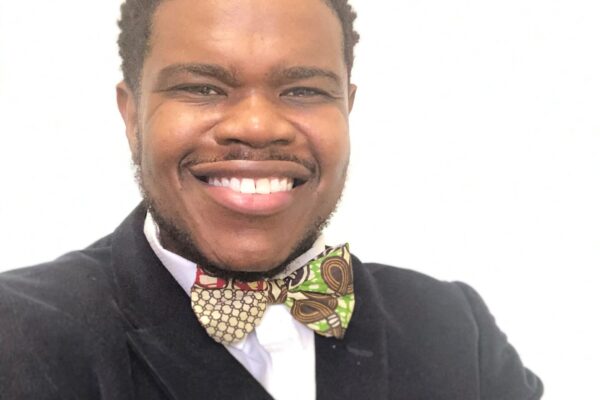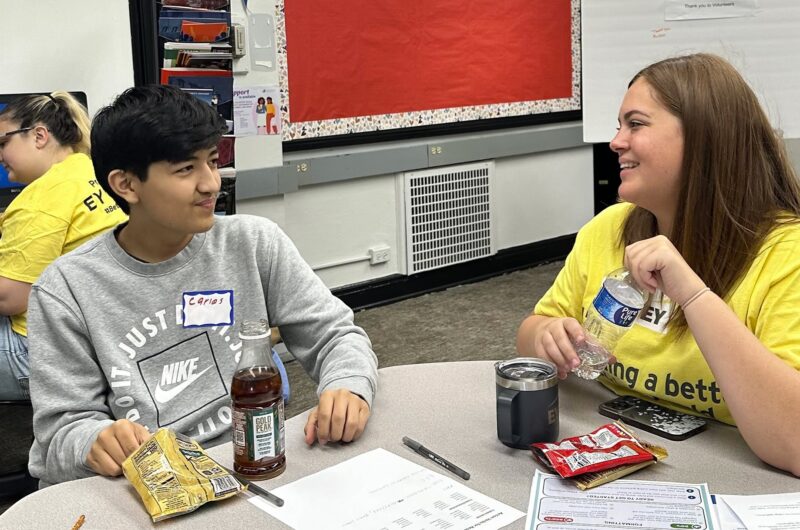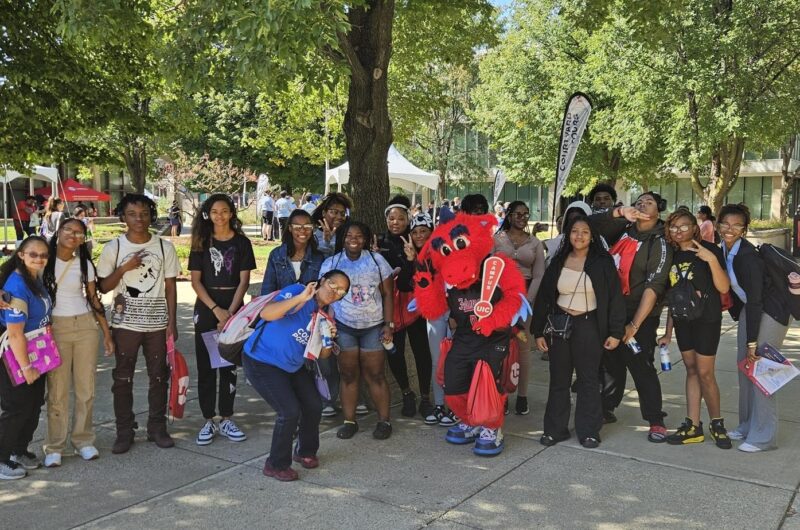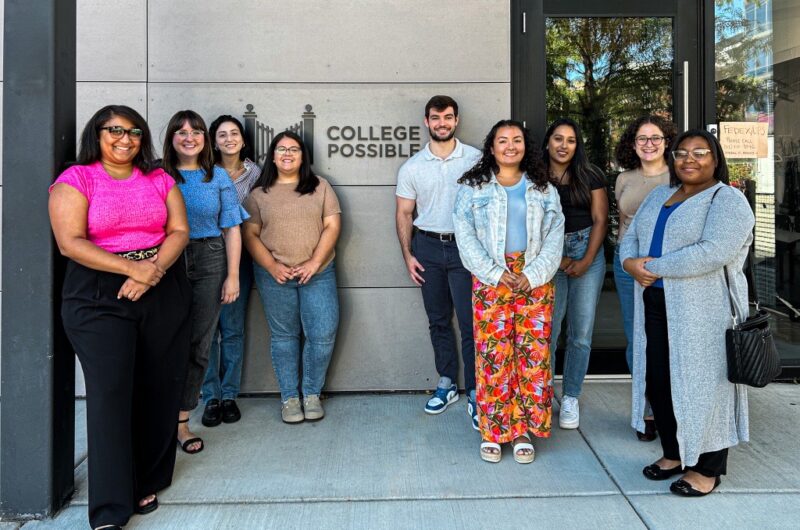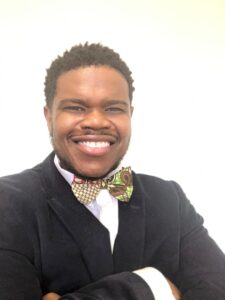 As director of college access at College Possible Chicago, Jason Carter leads the development and implementation of our high school programming. With more than 13 years of experience in this space, he is committed to unlocking opportunities for students from underrepresented backgrounds, helping them overcome barriers to earning their college degree.
As director of college access at College Possible Chicago, Jason Carter leads the development and implementation of our high school programming. With more than 13 years of experience in this space, he is committed to unlocking opportunities for students from underrepresented backgrounds, helping them overcome barriers to earning their college degree.
Over the course of his career, Jason has supported students at nearly every level – including primary, secondary and post-secondary education – most recently through roles at Chicago Public Schools (CPS) and DePaul University. He earned his bachelor’s degree in psychology from Florida Memorial University, his master’s degree in school counseling from Saint Xavier University, and is currently pursuing his doctorate at DePaul University’s College of Education.
We recently sat down with Jason to discuss the lessons he’s learned from his many years of experience in this field, and the key trends he is seeing among high school students applying and enrolling in college today.
Could you begin by sharing how you got your start in the college access field?
Growing up on the South Side of Chicago, my family didn’t have a wealth of information about the college landscape and the types of educational opportunities available. For us, the focus was always more on sustainability and paying the bills each month rather than long-term prosperity. Thankfully, I had a college counselor in high school who became like another grandmother to me. She did everything it took to ensure her students made it to college, from helping us through applications to making sure we walked on campus in the fall. Her energy, passion, and tireless advocacy for students served as an inspiration for me early on and is something I still strive to emulate in my work to this day.
Ultimately, this experience motivated me to take a similar path after college. I started my career as an outreach coordinator with TRIO, a program I had participated in as a kid. In that role, I provided college access support to students at some of the same neighborhoods and schools near where I grew up, including my alma mater, Robeson High School in Englewood.
You have more than a decade of experience helping students from under-resourced communities make it to and through college. What do you see as the largest hurdles to earning a degree facing these students today?
I think the biggest challenges stem from access to equitable and affordable educational opportunities. First, many students from low-income backgrounds and first-generation students – like those we support at College Possible – don’t have the same level of exposure to colleges as their more advantaged peers. This often leads them to “under-match,” or attend a school where they are overqualified and less likely to thrive. A good match looks different for every student, based on their academic, financial and other needs. But, if a student doesn’t know what options exist, they can’t make an informed decision about what school is the best fit for them. This is where the equity piece comes in. When students don’t have access to the right guidance to help them make a strong match, they end up falling short of reaching their full potential.
Second, affordability also plays a key role. Many students like the ones we serve have trouble covering the costs of a four-year degree, let alone paying for expensive services like test preparation that will make them a more competitive candidate for selective schools. All these factors influence a student’s ability to enroll in and, ultimately, graduate from college on time.
As we know, the pandemic exacerbated many of these challenges for students. How have you seen this continue to affect students as they prepare for and apply to college?
Though it may seem like the worst of the pandemic is behind us, its lingering effects are still very much present in today’s schools. We have all heard about pandemic-related learning loss. But less attention is given to the social-emotional toll on students. From my background in school counseling, I often think about what students have faced over the past three years and how it continues to affect them. Many lost family members, siblings, friends – some even lost parents due to COVID-19. Their home lives were upturned due to job loss and financial instability. At the same time, they were struggling to adjust to virtual learning during a time when teachers and schools were still trying to navigate the process.
As a result, students have absorbed a lot of trauma. I think there is an expectation that we need to move on from the pandemic – put the hammer to the nail and keep going. But we need to be empathetic toward the challenges still going on in students’ lives. In terms of preparing for college, I think many students are still highly motivated to earn their degree. They just need additional support in reaching that next stage, given all they have faced.
What are some of the steps College Possible is taking to help students overcome these challenges?
At College Possible, our coaches have provided a steady source of social-emotional support to students throughout these chaotic past few years. Our near-peer coaches bring a unique understanding of the difficulties students have gone through, given that many of them experienced similar challenges – having attended college during the pandemic themselves.
Our programming is designed to break down the very overwhelming process of college into manageable steps. This includes helping students build confidence and a vision for their future. To help increase their college awareness, we begin working with them in their junior year of high school to identify schools that are the best match and fit for them. One way we accomplish this is by taking them on campus visits. These trips expose students to new institutions and allow them to begin envisioning themselves at these schools.
Additionally, research tells us that students are more motivated to graduate from college when they can connect their education to a future career. We begin planting those seeds while students are still in high school, helping them explore different career pathways they can take after college. Currently, I am working closely with Keri Foley, the director of volunteer services at College Possible Chicago, to expand this part of our programming, as we’ve seen this is a significant motivator for students.
Finally, we also help students plan for college financially, including by connecting them to unique scholarship opportunities made possible through our partnerships with several local foundations. All these supports help set them up for success as they prepare to enter college. Then, we continue to work with them after they enroll, helping them through the college transition all the way until graduation.
Lastly, in light of the dramatic drops in college enrollment we have seen nationwide since the start of the pandemic, why – in your opinion – is a college degree still so valuable?
I’ve always said education is the most transformational step someone can take to change the direction of their life. Because at the end of the day, a college degree remains one of the surest pathways to achieving economic mobility. By graduating from college, a student not only increases their own potential for lifelong earnings, but also that of their family. When a young person is the first in their family to earn a degree, they become a beacon of motivation for those behind them. It creates a ripple effect, opening the door to a college education for generations to come.
I have seen this play out personally in my own family. I was the first in my family to earn a college degree, but not the last. I’m committed to expanding opportunities for students who, like me, will be first-generation graduates because a college degree is truly transformative.
